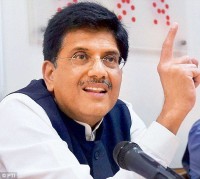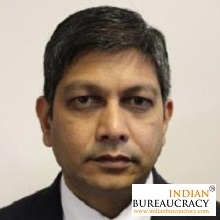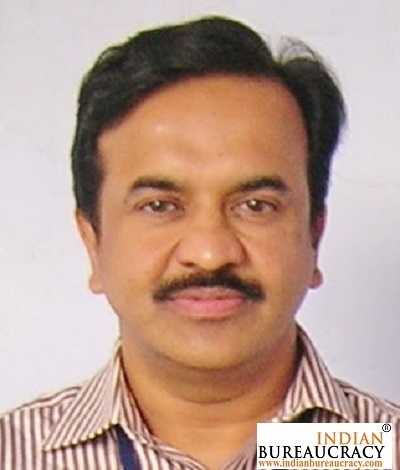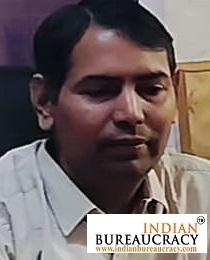Shri Piyush Goyal, Minister of State (Independent Charge) for Power, Coal, New & Renewable Energy and Mines chaired a meeting of the parliamentary consultative committee attached to the Ministry of Coal and the Ministry of Mines on the issues of “mines safety in coal mines’ and ‘initiatives in exploration regime’ respectively in New Delhi last evening. The Secretary Mines Shri Balvinder Kumar and the Secretary Coal Shri Susheel Kumar presented their reports for the information of the members on the respective subjects of their ministries.
The Members of the Committee were apprised of the ‘Initiatives in Exploration Regime’ in the Mines Ministry after it brought about far reaching changes in the mining sector since January 2015 when the Amendment Act of 2015 made the amendments to the MMDR Act 1957. The most important feature of this amendment is the grant of Mining Leases (ML) and Prospecting License-cum-Mining Lease (PL-cum-ML) only through an auction process. The Rule also specifies that for auction of mining lease, at least general exploration (G2) is required to be completed and for auction of composite license, at least preliminary exploration (G3) is to be completed. The Amendment Act removed the earlier provision of Reconnaissance Permit (RP) and provided for Non-Exclusive Reconnaissance Permits (NERP). The holder of such NERP would not be entitled to make any claim for the grant of any PL-cum-ML or a ML. To encourage exploration, the amended Act abolished the restriction on lease transferability and allowed the transfer of mineral concessions held by leaseholders to any person eligible to hold such lease.
Further, amended MMDR Act has established National Mineral Exploration Trust (NMET) and the holder of a Mining Lease or PL-cum-ML would pay to the Trust, a sum equivalent to 2% of the royalty paid in terms of the second schedule. The Trust is aimed to support regional and detailed exploration and related activities for development of exploration. The Act also has provisions for notifying organizations by the Central Government for exploration without licences. As of today, 13 such organizations and PSUs have been notified under this provision. The Act further has provisions for easy transferability of concessions obtained through auctions so as to attract private investment and FDI.
The compelling need to provide an impetus to exploration activity in the country at this juncture has prompted a thorough review of the Government’s Exploration Policy and strategy. Keeping in view the immense untapped mineral potential of the country, it was realised that there are many areas that need further facilitation and added emphasis is required for attracting investments and private exploration agencies in regional exploration. Accordingly, the new National Mineral Exploration Policy has been notified in July 2016 with a view to provide a new set of objectives, sense of purpose and direction within the amended legal framework. It is aimed at attracting private exploration agencies, and has the following main features:
(i) The Government will make available pre-competitive baseline geoscientific data free of charge. Geological, geochemical and geophysical data and maps on 1:50K will be provided in public domain.
(ii) Aero-geophysical survey of the country with a flight height of 80m and line spacing of 300m will be carried out in a mission mode under the National Aerogeophysical Mapping Project (NAGMP). Initially, the potential areas will be covered in three years and the data placed in public domain.
(iii) A National Geoscientific Data Repository (NGDR) will be set up. It will comprise all baseline and mineral exploration information generated by diverse exploration agencies.
(iv) Regional exploration of identified blocks by private exploration agencies through competitive bidding on an attractive revenue sharing basis.
(v) Government will launch a special initiative to probe deep-seated/concealed mineral deposits in the country aimed at characterizing India’s geological cover, resolving the metallogenic evolution, and detecting the distal footprints of deep-seated ore deposits.
The organizations under the Ministry of Mines engaged in mineral exploration viz. the Geological Survey of India (GSI) and Mineral Exploration Corporation Ltd. (MECL) are actively working towards fulfilling these objectives.
On the issue of ‘Mines Safety in Coal Mines’, Mines Act 1952 is the mother Act to ensure regulation of labour and safety in mines. To match the pace of technological advancement in various aspects of mining and related safety issues the Directorate General of Mine Safety (DGMS) takes care by issuing circulars and emphasising incorporation of Risk Management process in the mining activity. The members were informed about the measures taken by the Coal Ministry after the recent accident in Rajmahal Open Cast project of Eastern Coalfields Limited on 29.12.2016. A number of issues concerning safety in coalmines were deliberated upon and members contributed their useful suggestions.
The Members of Lok Sabha who participated in the meeting included Shri Hari Manjhi, Shri Kaushlendra Kumar, Shri Lakhan Lal Sahu, Shri Laxmi Narayan Yadav, Shri Midhun Reddy, Shri Ram Tahal Choudhary, Shri Ramchandra Paswan, Shri Ravindra Kumar Pandey, Shri Santosh Kumar and Shri Vishnu Dayal Ram. The Members of Rajya Sabha present in the meeting were Dr. Anil Kumar Sahani , Dr. Bhushan Lal Jangde, Smt. Chhaya Verma and Smt. M.C. Mary Kom.





